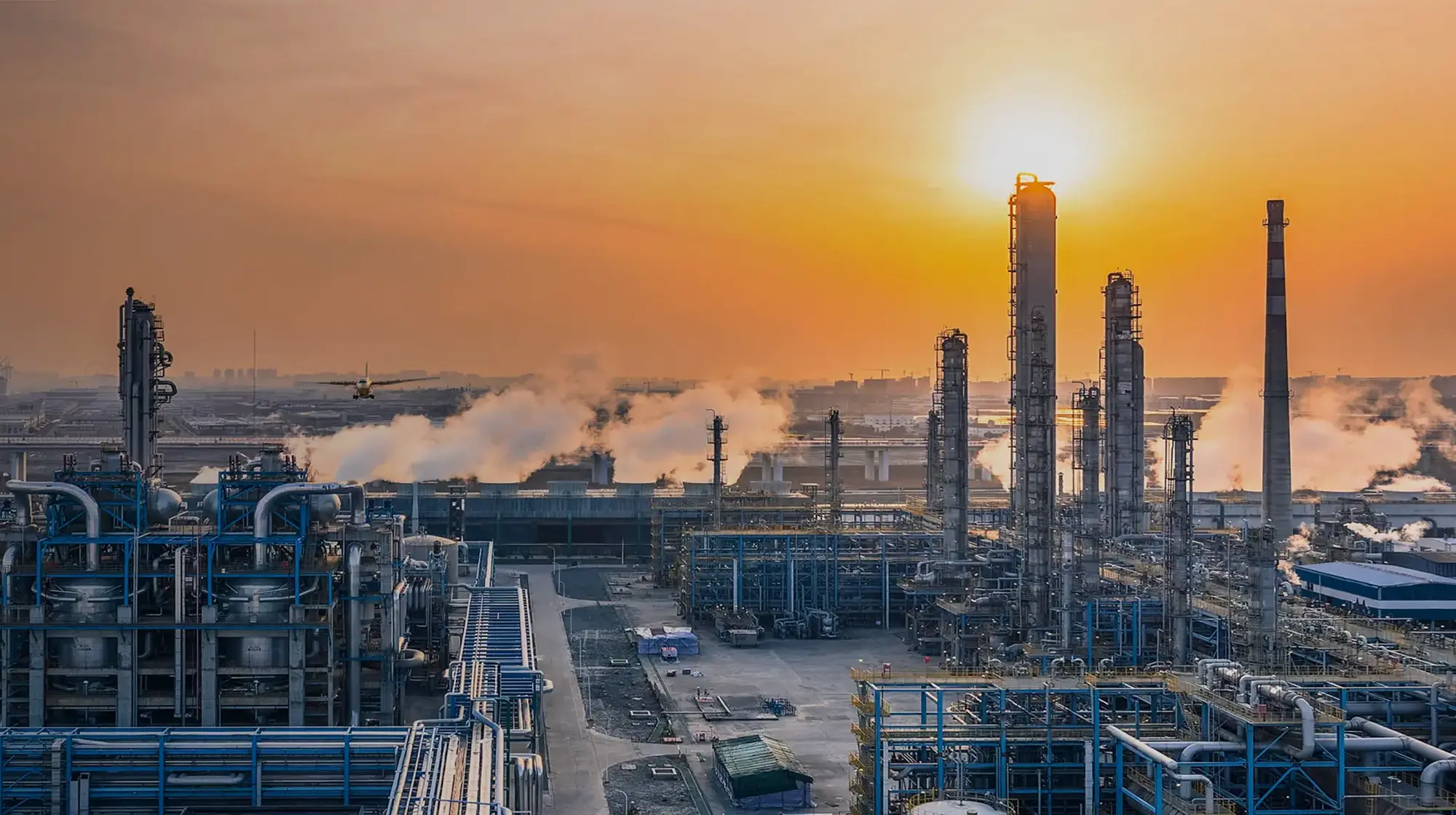Reports related to this article:
Plant(s): View 4 related plants in PECWeb
Released February 25, 2021 | SUGAR LAND
en
Researched by Industrial Info Resources (Sugar Land, Texas)--While power facilities sprang back into operation relatively quickly after last week's extreme cold snap in Texas and adjoining states, many plants belonging to other industries like Chemical Processing are taking longer to get back up to speed.

During the Arctic blast, there were 34 ethylene units offline by February 17 in Texas and Louisiana, with a total production capacity exceeding 50 billion pounds per year. For related information, see February 18, 2021, article - Severe Weather Keeps Energy Producers Cold in the South, a Weather Impact Update by Industrial Info.
As of Wednesday, Industrial Info was tracking 71 petrochemical units in Texas and Louisiana that were still down as a result of the disruptive freeze. In some cases, it could be a week or two before all of them are up and running again.
During Sasol Limited's (NYSE:SSL) (Johannesburg, South Africa) earnings conference call on Monday, executives mentioned the impact of last week's weather on the Lake Charles Chemical Complex (LCCP) in Westlake, Louisiana.
Brad Griffith, Sasol's executive vice president-chemicals, said the complex managed to keep its ethane cracking operations running despite the low temperatures, "but we are still working to restore operations for the derivative plants." He added he expects the restoration "to take place over the next seven to 10 days for some of the plants, but maybe more over the (next) 10 to 14 days for some of the more complex units, where we do face challenges, trying to get them warmed up and assessed for any damages."
The LCCP consists of a 1.5 million-ton-per-year ethane cracker and six downstream chemical units. The ethane cracker provides ethylene for the production of ethylene oxide, mono-ethylene glycol, ethoxylates, low-density and linear-low-density polyethylene, and Ziegler and Guerbet alcohols. Click here for more information on the LCCP.
Griffith said it was too soon to ascertain the financial impact of the outages.
The extreme temperatures also caused problems for polyethylene and polyvinyl chloride producer Westlake Chemical (NYSE:WLK) (Houston, Texas). Westlake Chief Financial Officer Steve Bender said on Tuesday that disruptions caused by widespread power outages and other weather-related issues took their toll on plant operations.
"While we are still assessing the impact of the storm, our estimate for loss margins from sales and repair expenses are approximately $120 million," Bender said during the company's earnings conference call. "Approximately $100 million will impact our first-quarter 2021 results with the remainder falling into the second quarter." Click here for the list of plants that Westlake Chemical operates in Louisiana and Texas.
Industrial Info continues to track the status of petrochemical plants in the wake of the winter storm:

During the Arctic blast, there were 34 ethylene units offline by February 17 in Texas and Louisiana, with a total production capacity exceeding 50 billion pounds per year. For related information, see February 18, 2021, article - Severe Weather Keeps Energy Producers Cold in the South, a Weather Impact Update by Industrial Info.
As of Wednesday, Industrial Info was tracking 71 petrochemical units in Texas and Louisiana that were still down as a result of the disruptive freeze. In some cases, it could be a week or two before all of them are up and running again.
During Sasol Limited's (NYSE:SSL) (Johannesburg, South Africa) earnings conference call on Monday, executives mentioned the impact of last week's weather on the Lake Charles Chemical Complex (LCCP) in Westlake, Louisiana.
Brad Griffith, Sasol's executive vice president-chemicals, said the complex managed to keep its ethane cracking operations running despite the low temperatures, "but we are still working to restore operations for the derivative plants." He added he expects the restoration "to take place over the next seven to 10 days for some of the plants, but maybe more over the (next) 10 to 14 days for some of the more complex units, where we do face challenges, trying to get them warmed up and assessed for any damages."
The LCCP consists of a 1.5 million-ton-per-year ethane cracker and six downstream chemical units. The ethane cracker provides ethylene for the production of ethylene oxide, mono-ethylene glycol, ethoxylates, low-density and linear-low-density polyethylene, and Ziegler and Guerbet alcohols. Click here for more information on the LCCP.
Griffith said it was too soon to ascertain the financial impact of the outages.
The extreme temperatures also caused problems for polyethylene and polyvinyl chloride producer Westlake Chemical (NYSE:WLK) (Houston, Texas). Westlake Chief Financial Officer Steve Bender said on Tuesday that disruptions caused by widespread power outages and other weather-related issues took their toll on plant operations.
"While we are still assessing the impact of the storm, our estimate for loss margins from sales and repair expenses are approximately $120 million," Bender said during the company's earnings conference call. "Approximately $100 million will impact our first-quarter 2021 results with the remainder falling into the second quarter." Click here for the list of plants that Westlake Chemical operates in Louisiana and Texas.
Industrial Info continues to track the status of petrochemical plants in the wake of the winter storm:
- Exxon Mobil Corporation's (NYSE:XOM) (Irving, Texas) was in the process of restarting its olefins plant in Baytown, Texas, on Wednesday, including its ethylene units. The plant was shut down on February 15 in preparation for the winter storm. See plant profile.
- In addition, ExxonMobil was in the process of restarting its Baytown polypropylene plant on Wednesday, which was shut down in preparation for the winter storm. See plant profile.
- Also in Baytown, Chevron Phillips Chemical was in the process of restarting its Cedar Bayou Olefins & Resins plant. See plant profile.


